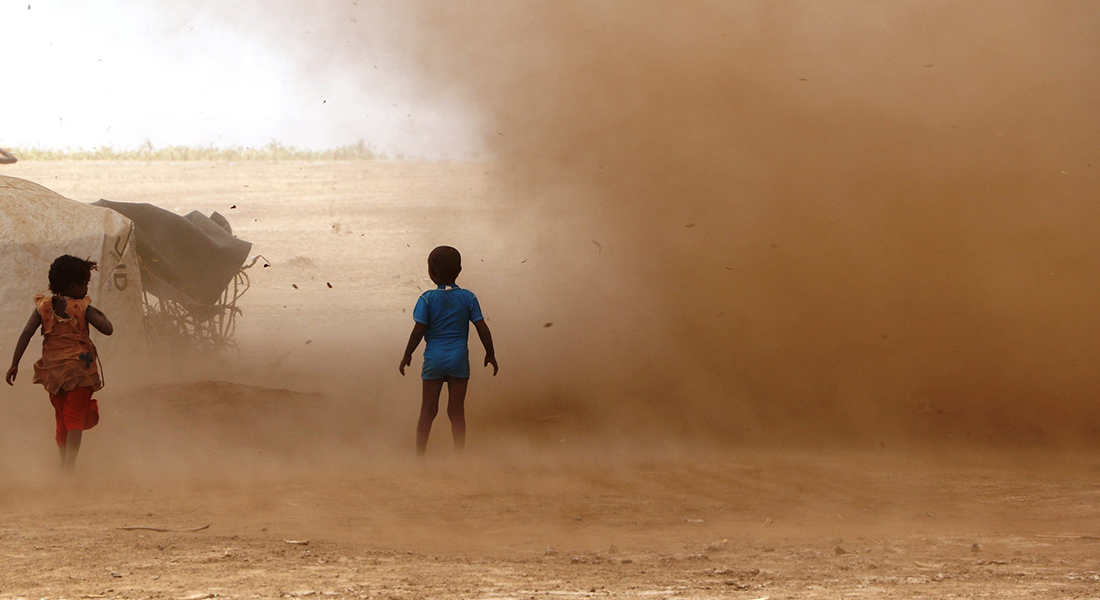Development economists to conduct climate-related research in five new projects
The UCPH-DERG research group under the Department of Economics at the University of Copenhagen has received funding for five new projects, all centred around climate and environmental issues. Read here about the projects and the expected results.

Economic research and policy in Kenya
Recent years have been characterised by several major shocks to the volatile international economy, including the COVID-19 pandemic, the war in Ukraine and the worst drought in East Africa in more than 40 years. Like most other countries, Kenya is struggling to absorb the impact of these shocks, particularly in the form of severe imbalances in public budgets and increases in the cost of living.
"Dealing with external economic pressures while protecting the most vulnerable puts extraordinary pressure on the economic policies of the Kenyan government, especially tax policy," says Finn Tarp, Professor and head of the UCPH-DERG research group at the Department of Economics.
He coordinates the project 'Economic Research and Policy Making in Kenya', which among other topics will study, how reforms can affect Kenya's economy, on the one hand, and the country's different income groups, on the other.
"Our research will enable the government to choose reform measures tailored to Kenya's economic structure and society. This can increase tax revenues and the effectiveness of policies to fight poverty and prepare the country for climate change," mentions Professor John Rand, who leads UCPH-DERG together with Finn Tarp.
The project is funded with DKK 10 million by the Danish Ministry of Foreign Affairs through the Royal Danish Embassy in Nairobi. The Department of Economics receives half of the funds.
Energy transition and climate-smart agriculture
How can a developing economy reduce greenhouse gas emissions and transition to cleaner and renewable energy sources, while industrial and agricultural production grows? This is what the project 'Energy transition and climate-smart agriculture in Vietnam' will explore.
"The relationship between economic growth and environmental quality is a central theme in the development process, but a key analytical element is missing. The underlying mechanisms are underexplored," points out Finn Tarp, who is leading the project.
Together with John Rand and a wide range of collaborators in Vietnam and two universities in the UK, the team behind this project will delve into three key research questions: Are state-owned enterprises sources of emission-reducing knowledge and technology transfers to private firms? What are the direct and indirect gendered benefits of households switching to clean, renewable energy? And can economic incentives and information dissemination reduce crop residue burning, improve farmers' welfare and reduce air pollution?
The project is funded with DKK 10 million by FFU/Danida Fellowship Centre. Half of the funds will go to the UCPH development economics research activities.
A Social-Accounting Matrix (SAM) with energy in Vietnam
Energy-based social analyses of Vietnam's economy are needed to help the country meet its commitment to reduce CO2 emissions – while taking socio-economic considerations into account.
The data basis for such analyses is being developed in the 'Energy Social Accounting Matrix for Viet Nam' (ESAM) project coordinated by Finn Tarp. The proposed data framework for the analysis is a so-called Social Accounting Matrix – SAM. Activities related to the energy sector are explicitly included.
"A SAM is a comprehensive data system, a matrix that shows all economic flows in a given period, providing an empirical basis for studying relationships between sectors, interregional resource flows and distribution of income to different population groups," says Finn Tarp.
The project is funded by the United Nations Development Programme (UNDP) in Vietnam, which grants half a million DKK to the project.
Sustainable procurement policy to mitigate climate change
The new EU regulation EUDR will restrict imports of coffee and other goods associated with deforestation. One of the countries that could be particularly affected is Vietnam, which, as the world's second largest coffee exporter, sells around 45% of its coffee production to the EU.
In the project 'Climate Change Mitigation in Agroforest Landscapes through Sustainable Sourcing Policies', researchers will now investigate the consequences of the EU regulation.
"We ask: How effective is the EUDR in reducing deforestation and thus mitigating climate change? And how does the regulation affect the welfare and resilience of small coffee-producing households?" says Neda Trifkovic, Assistant Professor at the Department of Economics.
She leads the project, which will also examine how EUDR requirements are reshaping strategies and practices in the commercial coffee value chain and how the regulation interacts with existing environmental governance mechanisms in Vietnam's coffee sector.
The project is conducted by the University of Copenhagen in collaboration with universities in Australia and Vietnam. It is funded by the FFU/Danida Fellowship Centre with a total of DKK 10 million, of which the Department of Economics receives DKK 1.9 million.
A climate-smart future in Tanzania's rural areas
Neda Trifkovic is also involved in the project 'Climate-Smart Futures in Rural Tanzania', which FFU/DFC supports with DKK 10 million (of which the Department of Economics receives DKK 1.1 million).
"Here we will investigate the role of farmer organisations when Tanzania's smallholder horticultural farmers, especially women and youth, need to adopt climate-smart practices," she explains.
The project is led by the Department of Food and Resource Economics (IFPRO), University of Copenhagen, in collaboration with DTU and a number of research institutions in Tanzania.
Contact
Finn Tarp
Professor and Head of UCPH-DERG
Department of Economics
Mail: finn.tarp@econ.ku.dk
Phone: +45 93 50 91 61
Simon Knokgaard Halskov
Press and communications officer
Mail: sih@samf.ku.dk
Phone: +45 93 56 53 29
